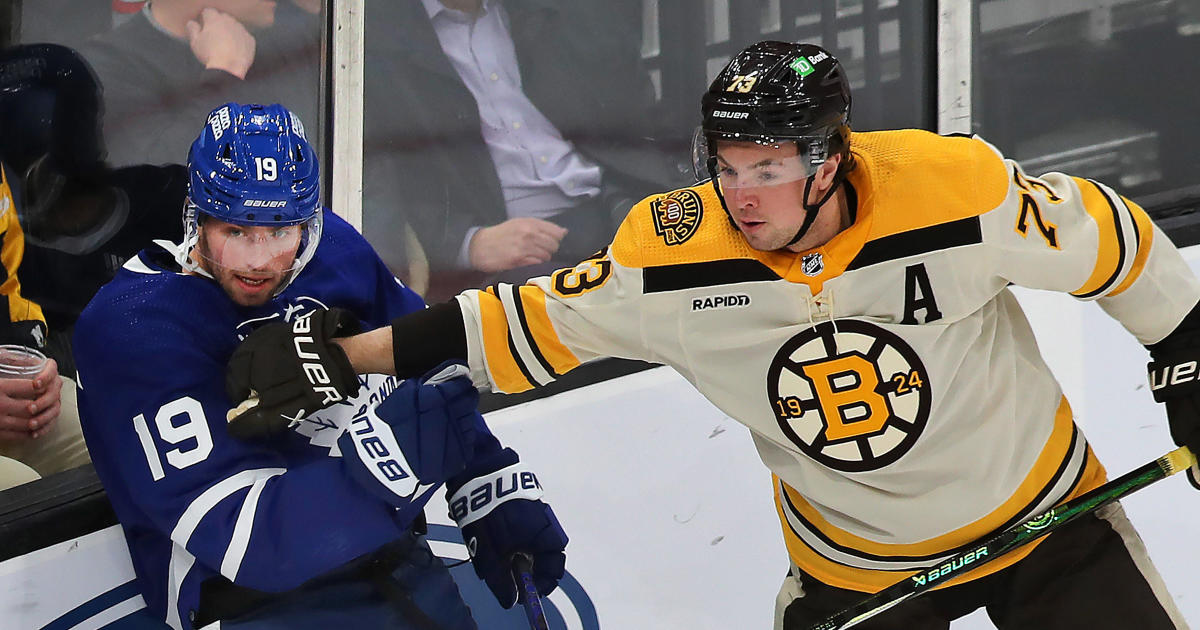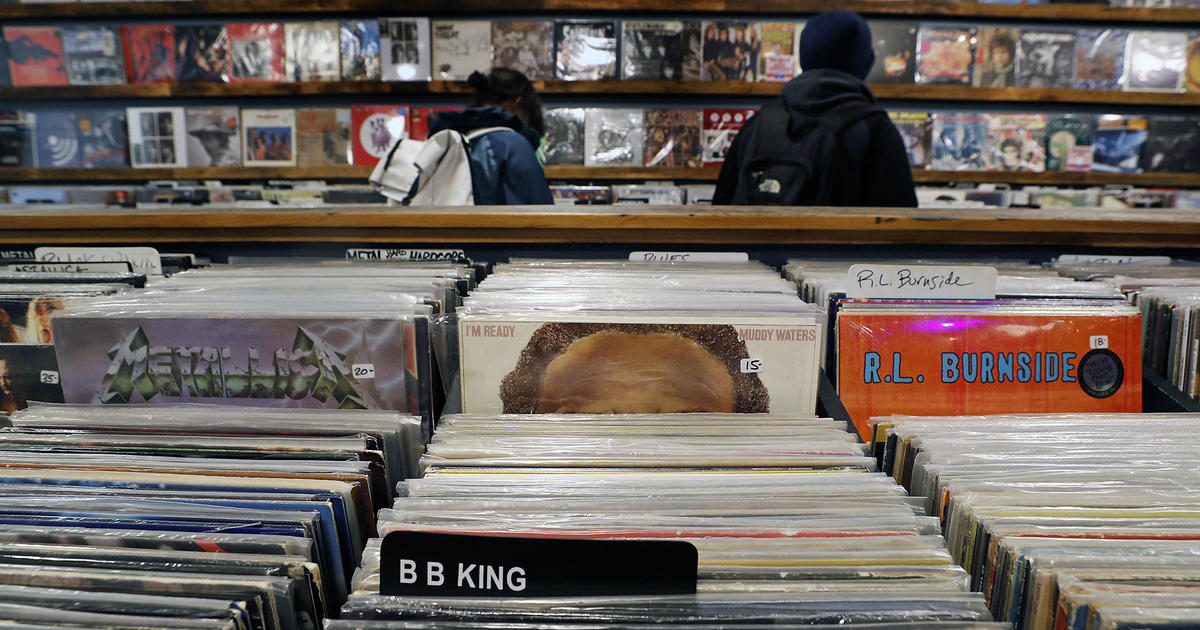Rod Brind'Amour Blames 'Mental Fatigue' For Game 2 Loss; What Is He Talking About?
By Michael Hurley, CBS Boston
BOSTON (CBS) -- The Stanley Cup Playoffs are a grind. Literally everybody who's ever partaken or just observed hockey games in the months of April, May and June is well aware of this reality. Only teams with great mental and physical toughness can continue playing at this time of year.
The Carolina Hurricanes, though, are feeling a bit tired.
That's at least the best explanation that head coach Rod Brind'Amour -- a man who knows a thing or two about what it takes to play into June -- could give to the media when trying to make sense of the belly flop that was Game 2 in Boston.
"It looked like we were really tired. And that's ... we've only played two games in 10 days, but I think the mental fatigue got to us," Brind'Amour told the media on Monday. "There's been a real strong push by our guys for about four months, and it just felt like we didn't have that extra gear you need at this time of year."
Brind'Amour surmised that the Hurricanes simply hit a wall, something he almost expected to happen at some point.
"I'm shocked that we got this far without having that," he said. "Since January 1 we've had to get into playoff mode, and grind these guys. There's only so many times you can go to the well, where they don't respond. And it happened the other night."
As Brind'Amour stated, the Hurricanes have played two games since May 3. The team had a full five days of rest after sweeping the Islanders in the second round before Game 1 last Thursday. Tuesday night's Game 3 will mark Carolina's seventh game in 20 days.
Presumably, such breaks would have allowed a team like Carolina to get the rest -- physical and mental -- that it would need in order to make a strong push to the Stanley Cup Final. Instead, the Hurricanes have been outscored 11-4 over the first 120 minutes of the conference finals.
What's perhaps most odd about Brind'Amour's comment is that seemingly all of the coverage it garnered leans toward the sympathetic side.
The Raleigh News & Observer story said:
"The Hurricanes have indeed been pressing since January, when they were among several teams mired at the bottom of the Metropolitan Division standings and were on what is essentially must-win alert since then just to get into the playoffs, let alone advance through two rounds."
The NHL.com story notes:
"They went 31-12-2 in their final 45 games and clinched a playoff berth April 4, two days before the end of the season. They were down 2-0 against the Washington Capitals in the Eastern Conference First Round before winning in seven games."
The Toronto Sun story said:
"Carolina won eight of 12 games in January and went 10-3-0 in February, followed by a 9-6-1 run in March. With the season on the line, the team won its final three games to leap past Columbus and Montreal, finishing in seventh place in the East. That takes its toll — something that we're starting to see in the conference final against a Boston team that had a playoff spot locked up pretty much by January."
All of that is true. The Hurricanes did have to win hockey games in order to make the playoffs, and they did make a hearty climb up the Eastern Conference standings after starting the year 15-17-5.
But ... every team that's still alive had to win a lot of hockey games in order to get here. And the Hurricanes' record since January isn't particularly overwhelming.
From the dawning of the new year until the end of the regular season, the Hurricanes went 30-12-2. In that same span, the Bruins went 28-10-5. The Blues went 30-10-5. The Sharks went 25-14-2.
The Bruins won a Game 6 on the road and a Game 7 at home in the first round of the playoffs, before rattling off three straight wins to climb out of a 2-1 hole against Columbus in round two. The Blues were taken to double overtime of Game 7 in Dallas -- a rather fatiguing experience -- before winning their second-round series. The Sharks trailed 3-1 in the opening round of the playoffs and needed a double overtime win in Game 6 and an overtime win in Game 7 to stay alive; they were pushed to seven games by Colorado in the second round, too.
Having to win all of those hockey games didn't give those teams an excuse to stagger and stumble their way through the first two games of the conference finals. San Jose won Game 1 against St. Louis just three days after winning Game 7. St. Louis responded with a 4-2 road win in Game 2 to even the series.
The Bruins were likely feeling mentally fatigued when their series vs. Carolina started. Boston only got one day of rest between the first and second rounds, and then had to play an overtime game and a double overtime game to begin the second round. The Bruins got all of two days of rest before this current series began. The Bruins played Game 1 without their best defenseman and fell behind 2-1 through two periods.
Instead of succumbing to the fatigue, though, the Bruins have outscored their opponent 10-2 over the last four periods.
It can be done.
Really, the Hurricanes didn't lose Game 2 because of fatigue. They lost because their goalie let in a tissue-soft goal late in the first period -- a period which Carolina played pretty well overall. They lost because their captain took two penalties, both of which led to power-play goals for the opponent. They lost because their team stood still, staring at Marcus Johansson, waiting for him to shoot; he instead passed, and Connor Clifton calmly deposited a puck into a vacated net.
The garden variety loss descended into embarrassment territory because of careless puck management in the third period, first by Justin Faulk to lead to David Backes' goal, and later by Dougie Hamilton, leading to Danton Heinen's goal.
Did those breakdowns have to do with the fact that Carolina had to play hard against the Sabres and Rangers in mid-January in order to make the playoffs? When the Hurricanes completely lost track of Jake DeBrusk just seconds after a faceoff in the Carolina end, thereby giving the forward three chances to bury his own rebounds, was that because they needed seven games to knock off the Capitals a month ago?
Back in Game 1, did Jordan Staal commit a boarding penalty in the opening minute of the third period because he needed a mental break? Did Dougie Hamilton begin his own parade to and from the penalty box for the same reason? Did these things really happen because of fatigue?
Everyone's fatigued in mid-May. That's kind of the deal that players and coaches make in order to make runs like this. It's the teams that are willing to ignore the fatigue that end up reaching the ultimate goal.
You can email Michael Hurley or find him on Twitter @michaelFhurley.



